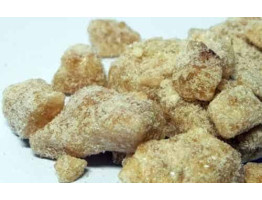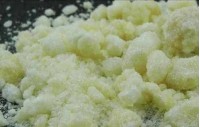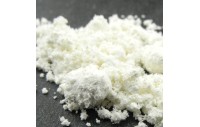Buy MDMA for sale online - USA vendor

- FREE shipping, 6-7 days delivery time
- Inner sending exist.
The main payment option is Bitcoin. As extra ways WU, MG.
We alwayse provide FREE samples of Top products with the main order.
Loyalty program exist, second order will be - 5%OFF
Safely work only with us! We provide - re-shipment guarantees.
Here you'll discover unused lawful items of immaculate quality.
Some time recently purchase if you don't mind make beyond any doubt that the items beneath your curiously are lawful in your country.
We do not offer a pharmaceutical items or beneath control items.
The Ultimate Guide to MDMA: Forms, Effects, and Where to Buy
Introduction
MDMA, often referred to as "Molly" or "Ecstasy," has gained popularity over the years as a party drug that enhances mood, energy, and sensory perception. Available in various forms such as powder, crystals, and pills, this substance has piqued the interest of both casual users and researchers studying its psychological effects. Whether you're seeking to learn more about MDMA, its effects, or where to purchase it safely and legally, this guide will provide valuable insights.
This blog focuses on the different forms of MDMA (e.g., crystallized MDMA, MDMA powder, and Molly crystals), its effects, and answers some of the most common questions about buying MDMA online and offline. Keywords such as buy MDMA, MDMA for sale online, and order MDMA online will also be discussed.
What Is MDMA?
MDMA stands for 3,4-Methylenedioxymethamphetamine, a psychoactive drug known for its euphoric effects and ability to boost empathy and connection. It's often sold under the street names Molly, Ecstasy, or XTC.
One of the most sought-after variants is MDMA crystals, which are highly pure and preferred for their intense effects. Another common format is MDMA powder, a versatile form that can be consumed directly or used in combination with other substances. Both crystallized MDMA and Molly powder are widely popular among recreational users.
For those unfamiliar, Molly's effects stem from its ability to increase serotonin, dopamine, and norepinephrine levels, leading to boosted mood, energy, and emotional closeness.
Forms of MDMA Available
1. Crystallized MDMA
Crystalized MDMA, also known as MDMA crystal form, is a pure and potent version of the drug. It’s easy to identify due to its transparent, rock-like appearance. Crystals have gained traction for being a "cleaner" version of MDMA and are often used at festivals and raves.
If you’re searching for where to buy MDMA online, you’ll often find many options offering crystall molly or Molly in crystal form. These vendors often highlight the purity and intense effects of this form.
2. MDMA Powder
MDMA powder is another popular variant, primarily used due to its versatility. From mixing into drinks to consuming in small capsules, powdered Molly offers flexibility, making it a preferred choice for many users. Molly in powder is frequently spotted in the party drug scene but also used in therapeutic doses during research.
3. MDMA Pills
Often referred to as ecstasy pills or drugs pills, MDMA in pill form is widely recognized for its colorful designs and branding. Pills are convenient, pre-dosed, and therefore favored by first-timers. However, users must exercise caution, as counterfeits are common in this format.
Choosing the right format depends on personal preference and purchase intent. Whether it’s Molly crystal form, black molly drugs, or Molly drugs picture, be sure to verify the vendor's authenticity when making a purchase.
Effects of MDMA
Whether you use MDMA in crystal form or Molly powder, the effects typically include:
- Mood Enhancement: Users often experience a euphoric state, likened to a feeling of deep emotional connection.
- Heightened Senses: Enhanced tactile, auditory, and visual sensations are common.
- Empathy and Communication: Known as one of the best love drugs, MDMA encourages openness and emotional connection during social interactions.
- Energy and Focus: It’s often referred to as a party drug, as it enhances stamina and the ability to dance for hours at clubs or festivals.
However, it’s crucial to recognize that MDMA can cause side effects, including dehydration, overheating, or serotonin depletion. Always hydrate and know your limits when consuming xtc drugs or party drugs.
Where to Buy MDMA Safely
Online Vendors
The rise of e-commerce has made it easier than ever to buy MDMA online. But with this convenience comes the challenge of identifying trustworthy vendors. Popular search queries like order MDMA online, MDMA for sale online, or buy research chemicals MDMA lead to countless options, but not all are legitimate. Look for reviews and evidence of product purity before purchasing.
When shopping for MDMA, you’ll often come across listings for:
- Crystalized MDMA
- Molly crystal
- MDMA molly powder
Certain vendors even cater to specific markets, such as MDMA Canada buy or MDMA cost USA, offering localized services and shipping options.
Physical Vendors
If you’re wondering where can I buy ecstasy or wondering about buying MDMA in person, your options might be limited depending on local laws. MDMA is often sold at festivals or clubs but comes with the risk of counterfeit products or legal repercussions.
For first-time buyers, your safest bet is to discuss with reputable vendors online who can provide methylenedioxymethamphetamine for sale in high purity and discreet packaging.
Legality of MDMA
One of the most frequently asked questions is, “Is 2-CB or MDMA legal in the USA?” As of now, MDMA remains classified as a Schedule I substance in the U.S. under the Controlled Substances Act, meaning it’s illegal for recreational use. However, research institutions are actively studying the benefits of MDMA for therapeutic purposes, potentially paving the way for a change in classification.
While molly drug effects are promising in therapeutic settings, recreational possession carries heavy penalties. Whenever buying MDMA or any party drug, understand the legal obligations and risks.
Tips for MDMA Buyers
For those committed to buying ecstasy, buying MDMA, or related substances, follow these tips for a safer experience:
- Research Vendors: Ensure the seller is reputable and provides transparent information on product quality.
- Prioritize Purity: Look for items marketed as pure powder MDMA or Molly in crystal form to minimize impurities.
- Discretion in Delivery: Choose vendors who offer discreet shipping for an added layer of security.
Popular searches like where can I buy Molly or black molly drug often direct buyers to online forums and vendors. Always double-check reviews to avoid potential scams.
The Future of MDMA
With ongoing studies into the therapeutic application of MDMA, especially for PTSD, social anxiety, and depression, the perception of this extasy drug is changing. Despite its stigma as a party drug, its role as a treatment for mental health conditions might soon lead to greater acceptance and even legalization in the near future.
For those looking into MDMA for recreational or research purposes, the availability of MDMA buying or ecstasy online avenues ensures easy access if approached responsibly. From Molly drug effects to best love drugs, MDMA continues to hold a unique position in the world of recreational and medicinal substances.
Final Thoughts
Buying MDMA, whether in crystal form, powder, or pills, is a personal choice that comes with its own risks and rewards. From MDMA molly crystal to powder MDMA, there are plenty of formats and vendors to explore. However, always prioritize safety, legality, and product quality. By following the tips shared here and staying informed, you can enhance your experience while reducing risk.
Whether you’re searching for MDMA for sale, buy MDMA online, or order MDMA online, remember to tread carefully and make educated choices.










